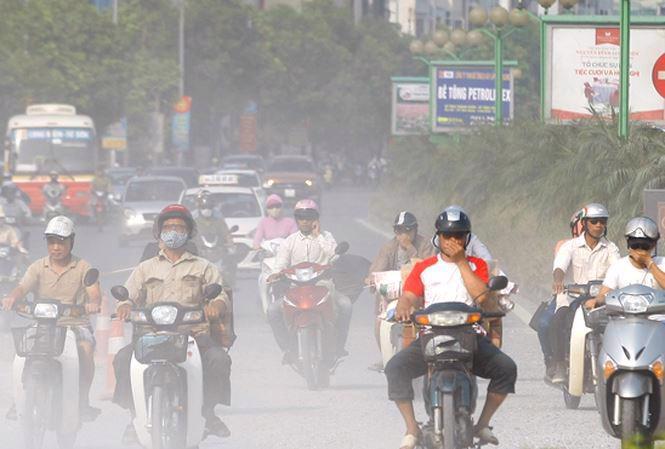Air pollution is a serious problem in many areas, prompting experts to recommend various solutions, including researching and implementing emission taxes.
At the event "Air Pollution and the Transportation Sector: Opportunities and Challenges in Vietnam and Elsewhere," part of the Science for Life symposia within the framework of the 2024 VinFuture Sci-Tech Week, experts identified industrial production and transportation as the primary sources of air pollution.
Assoc. Prof. Ho Quoc Bang, Director of the Air Pollution and Climate Change Research Center (APAC), highlighted that in Vietnam's major cities, Hanoi and Ho Chi Minh City, the main sources of pollution are transportation, industrial production, and electricity generation.
Hanoi, with a population of approximately 8.5 million (2022 statistics), has over 6 million motorcycles, 690,000 cars, and around 2,000 factories. Meanwhile, Ho Chi Minh City, with over 9 million people, has nearly 7.4 million motorcycles, 400,000 cars, and 2,780 industrial facilities.
Notably, while heavy trucks are the main contributors to traffic-related emissions in Hanoi, motorcycles are the primary culprits in Ho Chi Minh City.
Additionally, seasonal crop burning in rural areas significantly contributes to emissions, reaching up to 10% of the total during transitional periods, Mr. Bang stated.
Prof. Yafang Cheng, Director of the Max Planck Institute for Chemistry in Germany, provided alarming statistics: nine million people died prematurely in 2019, globally, due to air pollution, compared to seven million global deaths from COVID-19.
Experts emphasized that developing countries will need $1.3 trillion by 2035 to address the climate crisis, necessitating greater financial support to improve technology and adopt low-emission solutions.
Assoc. Prof. Bang proposed emission taxes as a solution, a measure already implemented in many countries but currently absent in Vietnam. He advocated for stronger measures, including researching and implementing pollution taxes, to protect the environment and public health.
Prof. Daniel Kammen of the University of California, Berkeley, emphasized the crucial role of electric vehicles (EVs) and their integration with public transportation.
He urged faster EV production and supportive legal frameworks, including policies for charging station construction and increased EV accessibility for lower-income individuals.
This, he said, would protect the climate and promote social equity.









 Google translate
Google translate